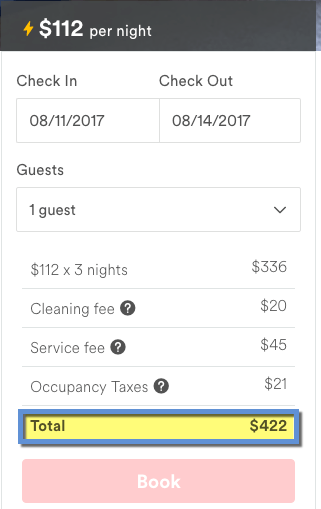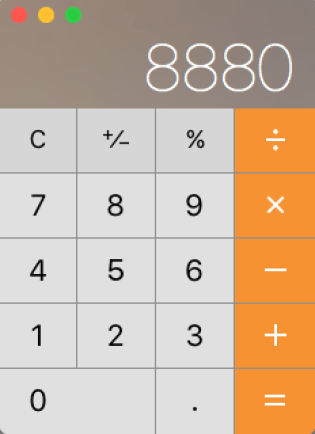So You Wanna Be an Airbnb Host? Part 1: Finding the Right Place
I’ve had Airbnb listings since 2014. In New York, I had 4 listings. And now that I’m in Dallas, I have 2 here.
I get asked a lot about how it all works. Peeps are interested because it’s a fairly low-maintenance source of extra income. I recently wrote I make an extra ~$18,000 a year from my Dallas listings.
While that doesn’t replace the income from full-time work, it sure is a nice boost as it rolls in throughout the year!

Finding an in-demand location is step numero uno
The first step is to find an attractive place in the right location: somewhere tourists want to stay. And as always with me, it comes down to the numbers.
Airbnb Hosting Index:
Part 1: Finding the Right Place
Part 2: Setting It Up
Part 3: Attracting Guests
Part 4: Ongoing Maintenance
Part 5: Taxes, Expenses, and Making It All Work
This series is meant for peeps who want to list an entire home separate from their primary residence on Airbnb.
Can you even do it?
First things first: is Airbnb legal in your town? If it’s not, what about the next town over? You don’t want to be too far from your listings on the off-chance something unexpected happens. And it will.
It doesn’t happen a lot, but I’ve had guests:
Take keys with them
Blow out the electricity
Need to come back because they left something behind
Report leaky pipes
Stop up toilets
Etc, etc, etc
I’d say once every couple of months, I need to access my place for something like this. It’s not a lot, but, like life itself, it happens.
If you can’t be around, perhaps you can find a friend or relative who lives nearby. Or a housekeeper with a fairly flexible schedule. There are a few ways to solve this, but the end point is you or someone needs to be available.
Find a place in a good area
Next, the place you find has to be in a desirable area. Otherwise it won’t work. If it’s in a good area without many chain hotels around, even better! That’s the situation I have in the Oak Lawn neighborhood of Dallas: it’s a cultural hot spot, but there aren’t any big-brand hotels within easy walking distance.
If there are a lot of hotel options, you’ll want to undercut them all and still make a profit. My other Dallas place is downtown, near many IHG, Starwood, Hilton, etc, hotels.

~$481 to stay at the Sheraton next month
I searched for a 3-night stay at the Sheraton next month. That would run me ~$481.

My place is $422 for the same weekend
I have my prices set to where the same stay is $60 cheaper.
For peeps who don’t care about hotel status or perks, or who simply prefer Airbnb places, my listing is a more attractive option.
How I run the numbers for Airbnb hosting
My rule of thumb is to assume the place you want to rent out will be occupied for 20 days each month.
That means if you’re looking to lease/buy a place that costs $1,500 per month, you want those 20 days to more than cover that cost.
$1,500 / 20 = $75 per night. So your breakeven point is $75 per night for 20 nights.
The Sheraton in the example above is $139 a night. My place is $112.

Keep your calculator handy – you’ll be running a LOT of numbers
$112 x 20 = $2,240. After rent is paid, that’s a profit of $740 a month, or $8,880 a year. Not bad!
Of course, 20 nights is an average. I’m closer to 25. But there will be slow months and busy months – based on seasonal things like weather, events, etc.
Once you know $75 per night (in this example) is your absolute base, see how high you can push it while still undercutting everyone else. You want to straddle that line between max profit and max bookings. It’s a delicate balance, but you’ll figure it out after a little trial and error.
Research similar listings on Airbnb to see how much other hosts are charging. How saturated is the area? Can you do better than other hosts? How much profit is enough for you to want to get into this?
What to look for in an Airbnb listing
Once you know how much a place costs and if the numbers even feasible, it’s time to pick a spot.
You’re likely going to be looking at a condo or apartment building unless you’re in a place where single-family homes are in great areas (like Charleston, Myrtle Beach, New Orleans to an extent).
If you have a single-family home, you don’t have to look for anything more. Just make the place look nice and welcoming.

Thou shall not pass more than 2 other doors
If you’re leasing a unit or have a condo, it’s much trickier. You might have to deal with a leasing office, HOA, property management company, or neighbors who don’t like Airbnb. I always look for places where a guest doesn’t have to pass more than 2 other doors, as a minimum.
In an elevator building, that means a place near the elevator. In other buildings, a place directly at the top of the first flight of stairs. As long as guests only pass 1 or 2 other doors, that’s ideal.
Go with your feelings
In your search for a place, you’ll likely be talking with lots of real estate agents, leasing agents, etc. Sometimes I say something like, “I’m not really home a lot. And have a lot of friends over,” to see what they say. If they respond with something like, “We really don’t care what you do,” that’s ideal. Just to feel them out a bit.
What’s the vibe like? Lots of younger people, or does it look like the residents have been there a while? If anything feels “off” or “not quite right,” high-tail it out of there. I’ve gone against my instincts a few times and always regretted it. Only do it if you have peace about it.
Exit plan
Once you find a place, you’ll sign a lease or some kind of agreement. Figure out the worst-case scenario if, for whatever, reason, you can’t have an Airbnb listing there. Will you be kicked out after a warning? Are there fines or early termination fees? Can you sublease? If so, is that feasible in your market?
Before you get into it, think about the end. If it all went down tomorrow, what would you do? Once you figure the worst that can happen isn’t that bad, you’ll feel a lot better about starting.
Most people don’t do things because of fear. Once you take that out of the equation, it’s easier to move forward.
Bottom line
Well that’s my wisdom about getting started with Airbnb. You’ll want to:
Find a place in a good area
Slightly undercut the competition
Run the numbers to make sure it will be profitable
Trust your instincts about choosing “the one”
My guidelines are:
Assume 20 days of occupancy per month
Make sure the unit you like doesn’t require guests to pass more than 2 other doors
If you do well, you’ll hit closer to 25 nights per month – especially in high-demand locations. Again, I can’t stress this enough, if anything doesn’t feel right, don’t do it. Your gut knows what your mind doesn’t. Trust it.
And figure out how much profit is enough for you. In the example above, would $740 per month be worth it to you? Would you do it for more or for less? Factors like distance from your home, your support network, and how much extra time you want to spend will – and should – affect this number.
In the next part of the series, I’ll talk about how to set up a place.
Any questions so far? Leave a reply below and I’ll try my best to help!



